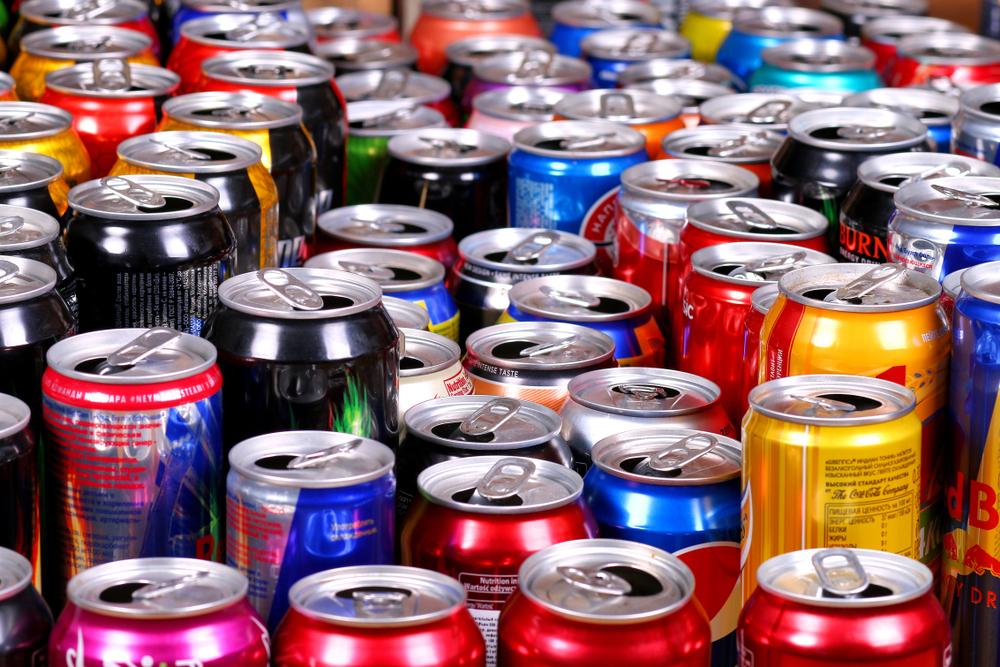
Energy Drinks Linked to High Blood Pressure, Heart Attacks and More
The energy drink industry is expected to be worth a whopping $84.70 billion by 2026. Popular brands like Monster and Red Bull are regularly sold by celebrities and plastered into advertisements as part of lucrative sponsorship deals. There's little question about whether these drinks have appeal.
But there's plenty of reasons why to keep these products out of your fridge. Keep reading to learn about the surprising and scary ways that energy drinks can harm your health.
A Toast to Your Health? What Studies Say About the Effects of Energy Drinks
Energy drinks may make you feel more amped up and raring to go—although research indicates that this could be due to a placebo effect, at least in the case of energy drink cocktails. But these popular beverages (heavily marketed toward children and teens) also come with a variety of potentially serious side effects:
- Increased blood pressure: a May 2019 randomized, double‐blinded, placebo‐controlled, crossover study published in the Journal of the American Heart Association found that consuming a high volume (32 fluid ounces) of an energy drink can raise blood pressure. Increased blood pressure (hypertension) is a known risk factor for heart disease and stroke, and the authors caution that individuals who already have hypertension should "be more vigilant and limit their energy drink intake."
- Increased QT interval: the same May 2019 RCT from JAHA also found that consuming energy drinks significantly prolonged participants' QT interval, which is a period in the heart beat cycle that reflects electrical activity in the lower chambers of the heart (ventricles). Having a prolonged QT interval increases the risk of irregular heart beats and can lead to syncope (fainting) and other serious consequences, as we'll soon see.
- Cardiac arrest: multiple reports, including a case study published in 2011 in BMJ Case Reports, have shown that consuming a large amount of energy drinks can lead to heart attacks. These serious events have even been found in otherwise young healthy individuals, as was seen in a case study of a 28-year-old man who collapsed at a motocross race and required CPR; he went into cardiac arrest after drinking large amounts of a popular energy drink (the paper was published in the Medical Journal of Australia).
Why does this happen? Researchers and medical doctors suggest that drinking energy drinks can lead to heart attacks because of their previously mentioned effects as well their tendency to increase the risk of heart muscle spasms, elevated heart rate, and blood vessel damage. Worryingly, these effects are especially pronounced when combined with stress or physical exertion, which is exactly the reason many people consume energy drinks—that is, to boost athletic performance.
Unfortunately, the damaging health effects of energy drinks doesn't stop at the heart. A 2017 review of the literature published in Frontiers in Public Health pointed to multiple other negative health effects imposed on people who regularly drink energy drinks, including an increased risk of obesity, kidney damage, liver damage, and caffeine toxicity. This data is echoed by the National Center for Complementary and Integrative Health who also point to tooth erosion and nervous system damage as possible consequences.
Need a Boost? Avoid the Energy Drinks
As far as many health experts are concerned, beverages marketed as "energy drinks" are simply juices that aren't worth the squeeze. Not only are they full of refined sugar and other potentially harmful ingredients, but they have been repeatedly shown to increase the risk of health problems—even in children and young adults who are otherwise healthy. Plus, the industry as a whole is poorly regulated and caffeine content is not always accurately listed.
If you're looking for other ways to boost your energy levels or optimize your physical performance, consider natural options like herbs, tea, and even water. Finally, consider making other healthy life changes in order to support better energy levels—such as optimizing your diet, immune health, gut health, sleep, and stress levels.
https://www.sciencedaily.com/releases/2017/11/171115124519.htm
https://www.frontiersin.org/articles/10.3389/fpubh.2017.00225/full
https://www.ncbi.nlm.nih.gov/pmc/articles/PMC4682602/
https://www.ncbi.nlm.nih.gov/pmc/articles/PMC3128328/
https://www.nhlbi.nih.gov/health-topics/long-qt-syndrome
https://www.ahajournals.org/doi/full/10.1161/JAHA.118.011318
https://www.sciencedirect.com/science/article/abs/pii/S1057740817300177
https://psychcentral.com/news/2017/05/14/placebo-effect-strong-with-energy-drink-cocktails/120497.html
https://www.marketwatch.com/press-release/energy-drink-2019-global-market-net-worth-us-8470-billion-forecast-by-2026-2019-04-18
https://nccih.nih.gov/health/energy-drinks
https://www.ajc.com/news/health-med-fit-science/just-one-energy-drink-can-harm-your-blood-vessels-study-suggests/5oqhTbNm0NPgcNTj2voE8J/
https://www.marketwatch.com/story/energy-drinks-may-be-linked-to-frightening-side-effects-for-your-heart-2019-05-29





.png?v=14052428765372906161761701960) Previous Post
Previous Post
%20copy.png?v=62173825240595680121761701960)